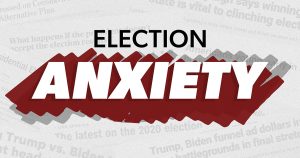The crypto market turned red this week after yet another pullback.
The price of Bitcoin fell 5.4%, hitting $61,680, while Ethereum’s price dropped by 4.4% to $3,382. Altcoins are a mixed bag: Cardano rose 1.3%, Solana nudged higher by 0.3%, Dogecoin jumped 0.2%, while XRP fell 3.9%, Shiba Inu 4.3%, and BNB 4.3%.
Meanwhile, speaking at the Bloomberg Investment Summit, SEC Chair Gary Gensler expressed confidence in the approval process for spot Ether ETFs. Although he refrained from giving a specific timeline, Gensler said the process was “going smoothly.”
“I don’t know the timing, but it’s going smoothly,” Gensler said. “It’s really about the asset managers making full disclosure so that those registration statements can go effective,” he added.
Spot Ether ETFs are inching closer to approval in the U.S. after the Securities and Exchange Commission (SEC) approved initial filings from issuers last month. The final approval of the much-awaited ETF is expected during the summer.
Zooming out
Just like Bitcoin ETFs, Ether ETFs is a major milestone that would legitimize Ethereum as an alternative asset class—potentially attracting substantial inflows from both retail and institutional investors.
As to how much, analysts have different opinions.
Bitwise Chief Investment Officer Matt Hougan, for example, predicts that Ether spot ETFs might rake in as much as $35 billion in total inflows within 18 months, which would translate to $15 billion in net inflows.
He arrived at this figure by estimating the inflows generated by Bitcoin spot ETFs and adjusting for the difference in market capitalization between the two cryptocurrencies.
“U.S. investors currently have $56 billion invested in spot Bitcoin ETPs. I suspect this will reach $100 billion or more by the end of 2025, as these ETFs mature and are approved on platforms like Morgan Stanley and Merrill Lynch,” Hougan wrote.
Based on this benchmark, Hougan then extrapolated that Ethereum ETFs could attract $15 billion net, after the conversion of the Grayscale Ethereum Trust to an ETF.
However, other analysts beg to differ, suggesting that Ether spot ETFs may see less demand than bitcoin ETFs.
For instance, JPMorgan believes that spot Ether ETFs won’t attract as much demand as bitcoin ETFs because the latter has a much stronger “safe haven” appeal, thanks to its first-mover advantage.
Meanwhile, Bernstein analysts argue that the absence of a staking feature in the ETF could hinder more significant inflows into Ether spot ETFs.
“ETH should not see as much spot ETH conversion due to the lack of an ETH staking feature in the ETF,” analysts Gautam Chhugani and Mahika Sapra noted in a recent analysis.
Read the full article here










